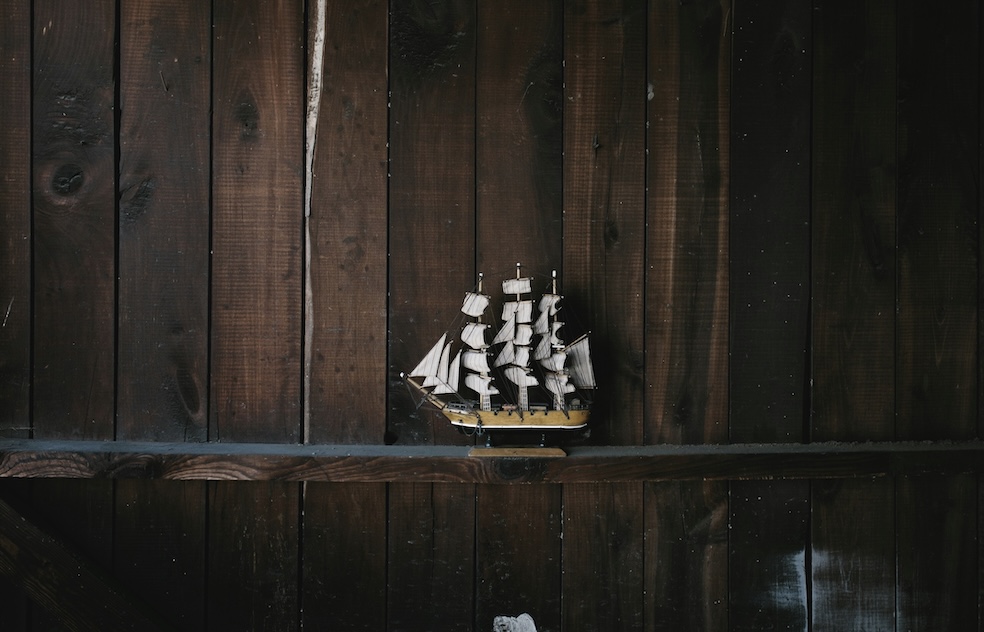Theseus was a fearless adventurer. He was known for his daring voyages. But what truly stood the test of time was his loyal ship.
It wasn’t any ordinary vessel.
It carried Theseus and his crew on countless voyages. But time got the best of the ship. Many parts of the wooden ship had to be replaced, new wood taking the place of the old.
Piece by piece, the ship transformed.
Finally, after countless journeys and replacements and its final dock, Theseus pondered a vital question: Is my ship truly the same vessel I used to set sail all those years ago?
Greek historian and writer Plutarch explains:
“The ship wherein Theseus and the youth of Athens returned had thirty oars, and was preserved by the Athenians down even to the time of Demetrius Phalereus, for they took away the old planks as they decayed, putting in new and stronger timber in their place, insomuch that this ship became a standing example among the philosophers, for the logical question of things that grow; one side holding that the ship remained the same, and the other contending that it was not the same.”
Though its form remained, many parts were replaced. The Ship of Theseus is the story of nature and identity.
What makes something the same thing over time?
Is it the physical matter, the constantly changing parts? Or is it something more, a form, a purpose, its core being?
You might argue that as long as the ship retains its design and function as a seaworthy vessel, then it remains the same. It’s still “The ship of Theseus,” even if Theseus is long gone.
We use this logic in everyday life.
Our bodies constantly regenerate, yet we remain the same person. We fix our cars, replacing parts, but they’re still our trusty vehicles.
But hold on.
If we take the replaced planks of the ship and rebuild another vessel, plank for old plank, wouldn’t that also be the ship of Theseus? Suddenly, we have two identical ships with a claim to the same identity.
It breaks down the “same function, same form” argument.
Perhaps, then, the history and past voyages define the ship. But then what about a ship built entirely new, meticulously designed to be a perfect replica down to the last detail?
Does it inherit the history of the original simply by looking the same?
That’s a blurred line between continuity and change.
Our own lives are like ships on an ever-changing sea. We gain experiences, lose loved ones, and our bodies transform. Are we still the same person we were a decade ago?
The ship of Theseus paradox extends beyond objects and ourselves. It applies to even nation. Its borders may shift, its people may change, but it endures. Is it the same country or something entirely new built on the foundation of the past?
“What is it that makes us the same person through time?
Possible responses to this problem are as follows: People and things are different. Response question: how are they different?
* People have thoughts and memories but ships don’t.
* We might change on the outside but our personalities stay the same. Response question: does that mean that our personalities can’t change? — The ship of Theseus
There are no easy answers.
It’s a thought experiment, a springboard for pondering the nature of our identity, change, and what it means to exist through time.
I like the beauty in the ambiguity.
The world and ourselves are constantly in flux.
Our bodies regenerate, our thoughts evolve, our experiences shape us. Are we, like the ship, fundamentally different after all this change?
Think of your own childhood home.
Over the years, the roof might be replaced; the paint might peel and be repainted. But the memories you hold, the laughter you shared with your parents in those walls — those remain.
Perhaps that’s the key.
Our identities are shaped by both the physical and intangible.
We are always “self-becoming.
But the question remains: Are we the sum of our parts, or is there a part of us that transcends the physical? The answer, like the journey itself, maybe more important than the destination.
It’s a constant exploration, a process of self-discovery that unfolds with every experience and every change we undergo.
“No man ever steps in the same river twice, for it’s not the same river and he’s not the same man,” says ancient Greek pre-Socratic philosopher Heraclitus.
You and I are slightly different versions of ourselves than yesterday.
Cells die and are replaced, yet we remain undeniably ourselves.
Is there a parallel here?
Like the ship, are we defined by some underlying essence that transcends the physical?
The answer, like the ever-changing sea, is still elusive.
Perhaps it’s not a binary — yes or no.
The ship may be both the same and different. It’s the same design, fulfilling the same purpose, yet undeniably changed by time and experience. It’s a paradox that reflects the complexity of identity, both in objects and ourselves.
The ship of Theseus is a thought experiment I use to contemplate the nature of change and the very meaning of what it is to be.
As we sail through life, our own ships will continue to evolve, but the constant state of becoming might be the most essential part of our voyages through time.
I am what I remember, and what I have forgotten.
Join my email list with 60K+ curious people who receive my best essays and free curated tools for better living.
